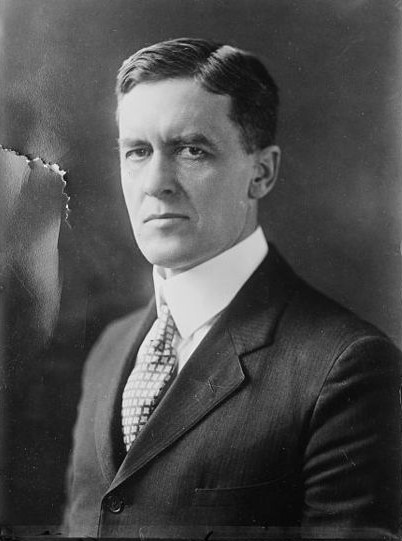Social Science
Henry P. Fairchild, Ph.D.
[Extensive excerpts from Vol. 7 of a series, Modern
American Education, published by the American Educatoinal Institute,
Inc., Philadelphia, Pennsylvania, 1921]
Henry Pratt Fairchild was born on 18 August, 1880, in Dundee,
Illinois. He received the A.B. degree from Doane College, Nebraska,
and the Ph.D. from Yale University. He began his long teaching career
at The International College, Smyrna in 1900. After serving on the
faculty at Bowdoin College, he went to Yale University (1910-18) where
he taught courses in economics and the science of society. During
World War I he held an administrative position in War Camp Community
Service.

Fairchild’s major teaching appointment was at New York
University where it extended over a period of 26 years, from 1919
until his retirement in 1945, and where he became chairman of the
Department of Sociology in the Graduate School. During the years
1929-31 he was president of the American Eugenics Society, and from
1934-38, president of the Population Association of America. He was
one of the leaders in the planned parenthood movement in the United
States. In his presidential address as the 26th president of the
American Sociological Society (1936), he pointed out how governing the
people of the United States involves the organization and
co-ordination of many diverse social elements, and yet in the national
government “an almost negligible part of the responsibility is
entrusted to sociologists.” In this same address, which was
entitled “Business as an Institution,” he discussed a
favorite theme of his, namely, the relations of sociology and
economics. After defining business as an organization of social
elements for the production of goods and services, he contended that
the sociologist’s role is to analyze the integration of social
elements in the business process, while economics analyzes the
productive aspects. Thus, it is essential that sociologists and
economists work side by side at closely related aspects of the same
process instead of simply speaking “to each other politely when
they casually meet.”
Fairchild was the author of a number of books, for example, his Greek
Immigration to the United States (1911) and Immigration (1913)
were supplemented by Race and Nationality (1947). His General
Sociology appeared in 1934, but he is most widely known for the
Dictionary of Sociology (1944), of which he was the editor. Of
his sixty major articles about one-third were on immigration,
one-fourth on population, and others related to the family, social
work, and world organization. He lectured widely and served on “innumerable
boards,” because he considered that one of the functions of a
sociologist is to make the findings of sociology intelligible to the
general public. Always an independent thinker, he did not hesitate to
speak forthrightly on leading social and economic problems. [Fairchild
died 2 October, 1956 in North Hollywood , California. The above
biographical information is reprinted from an obituary by Emory S.
Bogardus, The American Sociological Review, Vol.21, No. 6, p.
783
CHAPTER II
CHAPTER III
CHAPTER IV
CHAPTER V
CHAPTER VI
CHAPTER VII
CHAPTER IX
CHAPTER X
CHAPTER XI
CHAPTER XII
CHAPTER X--
CHAPTER XXVII
CHAPTER XXVIII
CHAPTER XXXIII
CHAPTER XXXIV
|











